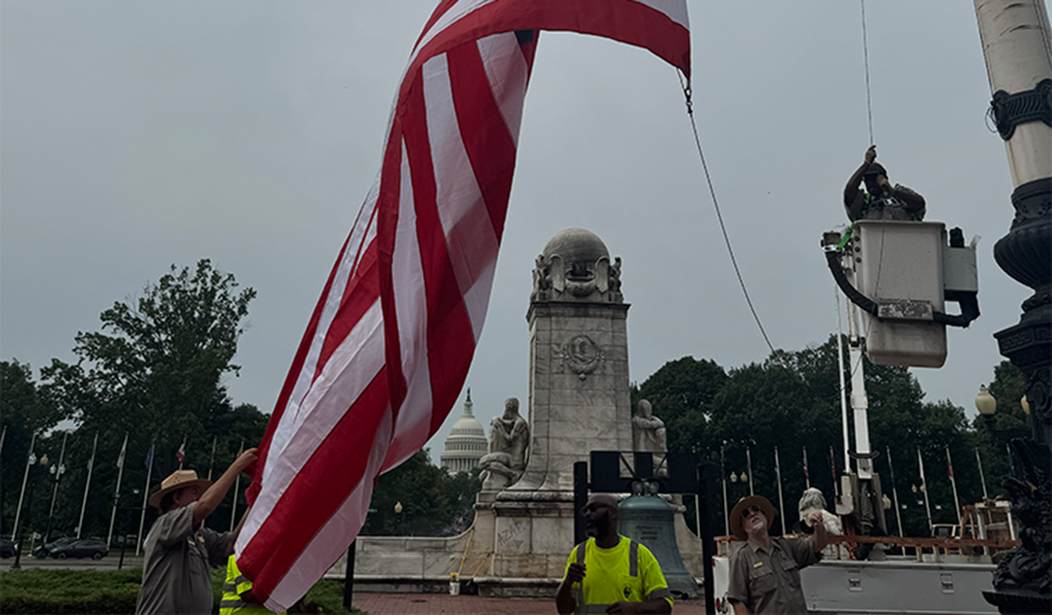Donald Trump, at a recent campaign event, pledged he would sign as president an executive order explicitly limiting the government’s ability to constrain speech: "I will sign an executive order banning any federal employee from colluding to limit speech, and we will fire every federal bureaucrat who is engaged in domestic censorship under the Harris regime."
Trump: "I will sign an executive order banning any federal employee from colluding to limit speech and we will fire every federal bureaucrat who is engaged in domestic censorship under the Harris regime." pic.twitter.com/TmgaidPqHK
— The Post Millennial (@TPostMillennial) September 7, 2024
Related: WATCH: Alleged CIA Agent Brags About Persecuting Alex Jones, Tucker Carlson
I don’t really understand the logic here.
The U.S. Constitution already explicitly prevents the government from censoring speech — in plain language, at the very start of the Bill of Rights.
There are already criminal penalties available to dispense with government actors who violate the Constitution (in other words, commit treason).
This is pretty cut and dry.
Who needs an executive order to enforce the Constitution?
That said, Trump’s record on free speech has been pretty decent overall — with one caveat.
The glaring exception that Trump makes to free speech protections — which does not have exceptions aside from very narrow ones like direct threats, imminent incitements to violence, libel, etc. — is flag-burning.
Donald Trump proposes making burning an American flag punishable by 1-year in prison.
— FOX 4 NEWS (@FOX4) August 26, 2024
In 1989, the Supreme Court upheld the right for protesters to burn flags after Gregory Lee Johnson did so at the RNC in Dallas. pic.twitter.com/qi87KUCWis
This issue has been litigated at the highest level of the judiciary; burning the American flag is protected speech. Indeed, in a bittersweet irony, the inalienable right that Americans have to free expression is what makes the American flag such a potent and revered symbol in a world otherwise devoid of the blanket guarantee of free speech affirmed in the U.S. Constitution.
Via U.S. Courts (emphasis added):
Gregory Lee Johnson burned an American flag outside of the convention center where the 1984 Republican National Convention was being held in Dallas, Texas. Johnson burned the flag to protest the policies of President Ronald Reagan. He was arrested and charged with violating a Texas statute that prevented the desecration of a venerated object, including the American flag, if such action were likely to incite anger in others. A Texas court tried and convicted Johnson. He appealed, arguing that his actions were "symbolic speech" protected by the First Amendment. The Supreme Court agreed to hear his case…
The majority of the Court, according to Justice William Brennan, agreed with Johnson and held that flag burning constitutes a form of "symbolic speech" that is protected by the First Amendment. The majority noted that freedom of speech protects actions that society may find very offensive, but society's outrage alone is not justification for suppressing free speech.
In particular, the majority noted that the Texas law discriminated upon viewpoint, i.e., although the law punished actions, such as flag burning, that might arouse anger in others, it specifically exempted from prosecution actions that were respectful of venerated objects, e.g., burning and burying a worn-out flag. The majority said that the government could not discriminate in this manner based solely upon viewpoint.
A lot of conservatives would disagree on this point, which is probably why Trump is promoting prosecuting flag-burners.
I believe in freedom of speech, however, as a non-negotiable principle because I believe in the spirit of Americana and all of the Western precedent that informed it going back to the Renaissance and even Christianity before that — even that speech which is offensive.










